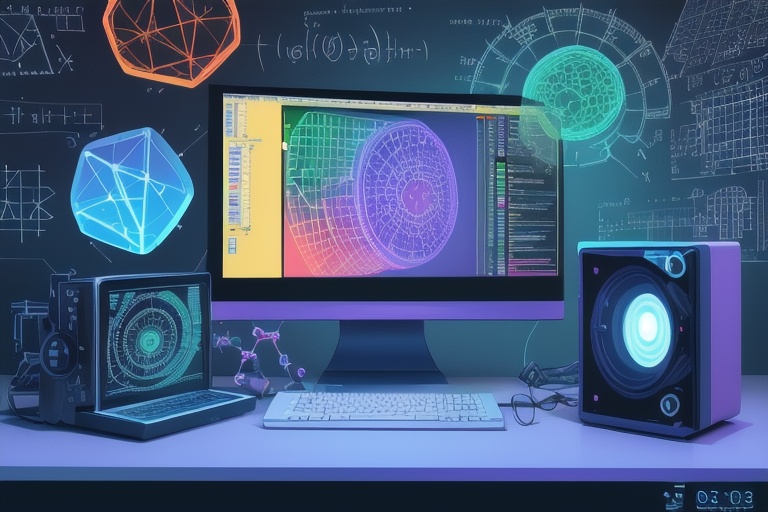Artificial intelligence (AI) is swiftly becoming a cornerstone technology, infusing itself across a multitude of sectors. From healthcare's personalized medicine to automotive advancements in safety and efficiency, AI's transformative power is evident. The education sphere also reaps the benefits, with AI fostering more customized and accessible learning journeys. Amidst this evolving landscape, we must conscientiously navigate ethical considerations such as data privacy and algorithmic bias. As we pivot towards a future where AI is omnipresent, it's crucial to harmonize these technological strides with human values.
Artificial intelligence (AI) is swiftly becoming a cornerstone technology, infusing itself across a multitude of sectors. From healthcare's personalized medicine to automotive advancements in safety and efficiency, AI's transformative power is evident. The education sphere also reaps the benefits, with AI fostering more customized and accessible learning journeys. Amidst this evolving landscape, we must conscientiously navigate ethical considerations such as data privacy and algorithmic bias. As we pivot towards a future where AI is omnipresent, it's crucial to harmonize these technological strides with human values.
The Dawn of Generative AI: Unleashing Creative Potential
AI's burgeoning capability to generate new content is poised to revolutionize the creative industry. Generative models that can craft images, write textual content, and compose music are not just tools for automation but act as collaborative partners for human creators. This symbiotic relationship between technology and creativity is expected to spawn a new era of content creation where boundaries are continually pushed and redefined.
AI-Human Collaboration: Synergy for Success
As AI systems enhance their capabilities, their roles in workplaces will evolve from tools to coworkers. Collaborative robots, or cobots, are set to work alongside humans, safely and efficiently, without replacing them. This trend suggests a future where AI amplifies human potential rather than supplanting it.
Ethics and Regulation: Shaping a Responsible AI Future
Ethical frameworks and regulatory guidelines for AI are of paramount importance. As we incorporate these technologies deeper into the fabric of society, we must establish principles that safeguard fairness, accountability, and transparency. A concerted effort to address ethical dilemmas and create robust regulations will be crucial in nurturing public trust in AI.
Low-Code and No-Code Platforms: Democratizing AI
The democratization of AI through low-code and no-code platforms empowers a larger population to develop AI solutions without specialized programming knowledge. This trend is instrumental in leveling the playing field and enabling a diverse group of users to create and benefit from custom AI applications.
Cybersecurity: The AI-Enabled Arms Race
As the complexity of cyberattacks grows, AI-powered cybersecurity becomes essential to detect and prevent breaches effectively. AI's ability to analyze vast datasets for patterns of malicious activity means that cybersecurity systems can evolve just as quickly as the threats they aim to neutralize.
Digital Twinning: The Convergence of Real and Virtual
Digital twinning, the creation of virtual replicas of physical systems, enables real-time monitoring and optimization. This AI-powered trend allows industries to simulate and analyze performance without risks, leading to improved efficiency and predictive maintenance.
Personalization: AI's Tailored Experiences
AI's knack for personalization is transforming customer experience across sectors. From personalized recommendations in e-commerce to tailored learning plans in education, AI is enabling services to cater to individual preferences at an unprecedented scale.
The Evolution of AI Voice Technology
Voice technology is an AI domain that's evolving at a rapid pace. Voice assistants and AI-driven communication tools are becoming more nuanced and contextually aware, making human-computer interaction increasingly natural and intuitive.
AI's Integration in the Automotive Industry
AI is a driving force in the automotive industry, bolstering safety and efficiency. From advanced driver-assistance systems (ADAS) to fully autonomous vehicles, AI is not only redefining transportation but also reshaping urban development and mobility.
AI in Healthcare: A Vision for Future Medicine
Lastly, AI's influence in healthcare promises to enhance everything from diagnosis to treatment and patient care. Machine learning algorithms are being developed to analyze medical data with greater accuracy, leading to improved outcomes and personalized healthcare strategies.
As we explore these trends, the overarching challenge remains: how do we ensure AI's ethical use, security, and regulation? It is only with responsible stewardship that we can harness AI's full potential to drive success and prosperity in our increasingly interconnected world.
Information for this article was gathered from the following source.




